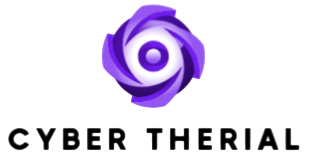Smart Habits for Maintaining Dental Health in Fast-Paced Environments
The Modern Challenge of Oral Care
In today’s fast-paced world, maintaining proper oral health can be particularly challenging for busy professionals. With demanding schedules and constant deadlines, many individuals find it difficult to prioritise their dental care routine. However, professionals seeking dental hygiene in Canary Wharf and other bustling business districts are discovering innovative ways to incorporate oral care into their hectic lifestyles.
Essential Time-Saving Dental Practices
Smart Morning Routines
Establishing an efficient morning routine is crucial for maintaining oral health without compromising valuable time. Dental health experts recommend implementing strategic morning habits that combine thoroughness with efficiency. This includes using an electric toothbrush with a built-in timer, which ensures proper brushing duration while maximising effectiveness.
Workplace Dental Kit Essentials
Professional environments need not be a barrier to maintaining excellent oral hygiene. A well-prepared workplace dental kit can make a significant difference. Essential items should include:
- Travel-sized toothbrush and fluoride toothpaste
- Dental floss or interdental brushes
- Sugar-free mints or gum containing xylitol
- Small bottle of alcohol-free mouthwash

Optimising Lunch Break Care
The lunch break presents a perfect opportunity for maintaining dental hygiene in Canary Wharf and other business centres. Implementing effective lunchtime dental care strategies can help professionals maintain optimal oral health throughout the day. A quick three-minute routine after meals can prevent the build-up of harmful bacteria and maintain fresh breath for afternoon meetings.
Smart Food Choices for Dental Health
Making intelligent food selections can significantly impact oral health while fitting seamlessly into a busy schedule. Professionals should prioritise:
- Crunchy vegetables that naturally clean teeth
- Calcium-rich snacks for tooth strength
- Foods high in vitamin C for gum health
- Water-rich fruits that help maintain oral hydration
Advanced Strategies for Busy Professionals
Technology-Driven Solutions
Modern dental care has evolved to accommodate busy lifestyles through innovative technological solutions. Smart toothbrushes with mobile applications can track brushing habits and provide real-time feedback, ensuring optimal care even during rushed morning routines. These devices can help professionals maintain dental hygiene in Canary Wharf and other business districts without sacrificing precious time.
Preventative Measures
Taking proactive steps to prevent dental issues saves valuable time and resources in the long run. Professionals should consider:
- Regular dental check-ups scheduled months in advance
- Professional cleaning appointments during quieter work periods
- Custom-fitted night guards for those who grind teeth due to stress
- Preventative treatments during routine visits
Managing Stress-Related Dental Issues
High-pressure work environments can lead to stress-related dental problems. Professionals should be mindful of:
- Jaw clenching during intense work periods
- Grinding teeth during sleep
- Acidic erosion from stress-induced dietary habits
- Impact of irregular eating patterns on oral health
Maintaining Long-term Oral Health Success
Success in maintaining oral health whilst managing a demanding career requires a balanced approach. By implementing these smart habits and utilising modern solutions, professionals can ensure their dental health remains a priority without compromising their work commitments. Regular assessment and adjustment of oral care routines help maintain this balance, ensuring that dental health becomes a natural part of daily life rather than an additional burden. The key lies in creating sustainable habits that work within individual schedules whilst maintaining professional standards.
Through careful planning and the adoption of efficient practices, busy professionals can achieve excellent oral health without sacrificing their valuable time or career advancement opportunities. Remember that investing in oral health today prevents more time-consuming dental issues in the future. By following these guidelines and maintaining regular professional care, individuals can enjoy optimal dental health whilst excelling in their fast-paced careers.
Inside the Emergency Dentist’s Toolkit: Unseen Essentials for Crisis Management
Essential Equipment for Dental Emergencies
When dental emergencies strike, having the right tools and equipment can make the difference between saving or losing a tooth. Every emergency dentist Richmond maintains a carefully curated toolkit designed to handle various dental crises at a moment’s notice.
Core Diagnostic Tools
The foundation of any emergency dental kit begins with diagnostic equipment. These essential items help practitioners assess the severity and nature of dental emergencies quickly and accurately. A comprehensive professional-grade dental diagnostic set typically includes specialised mirrors, probes, and advanced imaging equipment. Modern emergency dental practices maintain digital X-ray machines that provide immediate imaging results, enabling swift diagnosis and treatment planning. These devices prove invaluable when dealing with traumatic injuries or severe infections that require immediate attention.
Emergency Treatment Instruments
Beyond diagnostic tools, emergency dentists must maintain an arsenal of specialised instruments for immediate treatment. These include:
- Temporary filling materials
- Dental cement for crown reattachment
- Specialised extraction forceps
- Root canal treatment equipment
- Local anaesthetic supplies

Portable Emergency Solutions
Modern dental practices often maintain portable emergency kits for situations requiring treatment outside the surgery. These compact yet comprehensive portable dental emergency kits contain essential tools for managing common dental emergencies in various settings.
Sterilisation and Safety Equipment
Maintaining strict hygiene standards remains paramount in emergency dental situations. Emergency dental practices invest in rapid sterilisation equipment to ensure instruments are ready for immediate use. This includes:
- Autoclave machines for instrument sterilisation
- Disposable protective equipment
- Medical-grade sanitising solutions
- Barrier protection materials
The presence of these items ensures that even in urgent situations, proper infection control protocols can be maintained without compromising treatment speed or efficiency.
Advanced Treatment Equipment
Modern emergency dental practices increasingly rely on sophisticated equipment to provide comprehensive care during urgent situations. These advanced tools enable practitioners to handle complex cases efficiently and effectively.
Digital Imaging Systems
Contemporary emergency dental practices utilise state-of-the-art digital imaging systems that provide detailed views of dental structures. These systems help identify hidden damage and guide treatment decisions, particularly in cases involving trauma or infection.
Specialised Surgical Equipment
For more complex emergencies, dental practices maintain specialised surgical instrument sets designed for specific procedures. These might include equipment for:
- Emergency tooth extractions
- Treatment of dental abscesses
- Management of oro-facial trauma
- Temporary prosthetic solutions
Emergency Medication Management
A well-equipped emergency dental practice maintains a carefully monitored stock of essential medications. These include various strengths of local anaesthetics, antibiotics for severe infections, and appropriate pain management solutions. The medication inventory must be regularly checked and updated to ensure:
- Proper storage conditions
- Current expiration dates
- Appropriate stock levels
- Compliance with medical regulations
Looking Ahead: The Future of Emergency Dental Care
The field of emergency dentistry continues to evolve, with new technologies and techniques emerging regularly. Modern practices increasingly incorporate digital workflows and advanced materials that enhance their ability to provide urgent care effectively. These innovations help emergency dental practitioners deliver faster, more precise treatments while maintaining the highest standards of patient care.
As technology advances, the contents of the emergency dentist’s toolkit will undoubtedly continue to evolve, ensuring that dental emergencies can be managed with increasing efficiency and effectiveness. The comprehensive nature of these emergency dental toolkits reflects the complexity of urgent dental care. Whether dealing with severe toothache, traumatic injuries, or other dental emergencies, having the right equipment readily available enables practitioners to provide swift, effective treatment when patients need it most.
Top Benefits of Telehealth Counseling for Patients
Telehealth counseling has changed mental health care. Telehealth simplifies, adapts, and makes therapy accessible from home or anyplace with an internet connection. This advanced method solves travel and scheduling issues in traditional counseling. Patients can now obtain reliable, modified care regardless of location, which greatly increases treatment adherence. This milestone has increased mental health help access and encouraged more people to pursue treatment.
What distinguishes telehealth counseling?
- Better accessibility/convenience
- Virtual sessions save time and travel.
- Busy or irregular lifestyles benefit from easier scheduling.
- Helps rural and underserved communities get mental health experts.
- Care Flexibility Delivery
- Home, business, or other private spaces can host sessions.
- Phone, video, or chat/text therapy.
- Patients select comfortable, necessary modalities.
- Care continuity during disruptions
- Important during pandemics, natural disasters, and personal emergencies.
- Avoids missed visits and treatment interruptions.
- Maintains progress without office visits.
- Less Stigma, More Privacy
- Therapy in familiar surroundings reduces anxiety for many.
- Reduces patient anxiety by eliminating public transportation and waiting areas.
- In small towns, improves secrecy over in-person encounters.
- Cost-effective
- Reduces provider overhead, lowering expenses.
- Reduces patient transportation and childcare costs.
- May provide cheaper sessions or insurance.
- Specialized Provider Access
- Links patients to experienced clinicians worldwide.
- Especially useful for specialized mental health conditions.
- More options help patients find the proper treatment.
Common Telehealth Counseling Questions

Q: Does telemedicine counseling work as well as in-person therapy?
A: Telehealth is equal to outdated therapy, particularly for anxiety and depression, with many patients reporting better preference.
Q: Can telehealth handle emergencies?
A: Local emergency services should handle emergencies, but virtual therapy provides continuing support. Therapists offer emergency plans.
Q: Privacy concerns?
A: Telehealth platforms encrypt and secure patient data. Accredited providers maintain confidentiality.
Telehealth Counseling Advances Mental Health
- Encouraging frequent attendance with minimal interruption.
- Therapists can modify care by seeing patients’ home environment clues.
- Digital resources enable self-management.
- Promotes faster engagement, reducing important help delays.
Because of its ease, cost-effectiveness, and availability, telehealth treatment is transforming the field of mental health care. The usage of telehealth makes it imaginable for patients who are demanding or who are located in isolated areas to receive eminence care. Providing assistance for contemporary lives makes the improvement of mental health easier. If you or a loved one are in need of mental health help, telehealth may be the most convenient and efficient method available to you.
